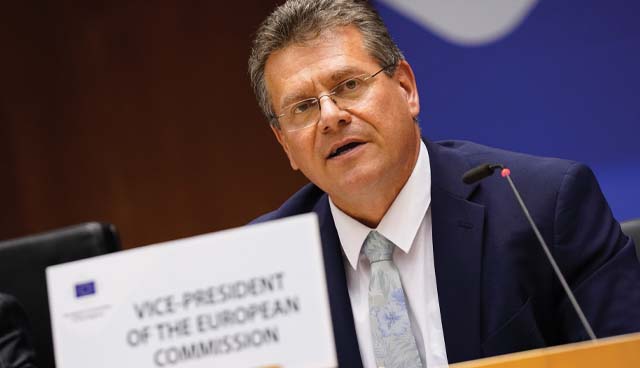Northern Ireland Protocol: No agreement on grace period extension so far

Time is running out for an agreement to be reached between the UK and the EU to prevent a huge increase in administration for retailers as some grace periods for implementing post-Brexit checks come to an end.
A resolution on how the Northern Ireland Protocol will be fully implemented at the end of September 2021 has yet to be reached, leaving retailers anxious about the impact of a dramatic increase in administrative burdens.
Although operational from the beginning of 2021, the Northern Ireland Protocol agreed between the UK and the EU as part of the EU-UK Withdrawal Agreement has yet to be fully implemented because grace periods, introduced to reduce initial frictions, remain in place in a number of areas.
Some of those grace periods, which postponed new checks and controls, not least a ban on some Great Britain-made meat products entering Northern Ireland, are set to expire on 1 October.
Additionally, supermarkets will be required to use export health certification for all products of animal origin going from Great Britain to Northern Ireland, a significant increase in the administrative burden.
However, with relationships between the UK and the EU strained over the Northern Ireland Protocol, hopes for a swift resolution are fading and retailers are concerned that no agreement will be reached before the current grace periods expire.
The source of tension between the EU and UK hinges on the UK’s approach to implementing the binding agreement that it settled with the EU. The UK Government has outlined its belief that the Protocol is not working and, recently, Brexit Minister David Frost asserted that the threshold had been met to allow the Government to invoke Article 16.
While the UK Government has stopped short of doing so, in July they published a command paper proposing a radical renegotiation of the Protocol. These proposals include:
• removing customs checks on goods from Great Britain to Northern Ireland;
• abolishing certificates and checks for food products to be consumed in Northern Ireland;
• removing medicines from the scope of the Protocol; and
• allowing goods labelled as conforming to UK rules to circulate in Northern Ireland.
The EU has consistently said that it is willing to seek creative solutions within the framework of the Protocol to ease frictions but is adamant that it will not renegotiate the Brexit deal that was agreed to prevent a hard border in Ireland.
“Respecting international legal obligations is of paramount importance,” said European Commission Vice President Maroš Šefcovic, emphasising that the Protocol was a joint solution between the EU and the UK.
The grace periods and their extensions have already been a source of contention between the two partners. Two extensions have already been applied, although under different arrangements. In March 2021, the UK unilaterally extended some grace periods, including the introduction of new checks on food, parcels and pets. In response, the EU launched legal proceedings, accusing the UK of breaching the Protocol. In June, the UK opted for a different tact, formally requesting an extension to chilled meats grace period, which was granted by the EU.
As of yet, the UK has yet to formally apply for a further extension for those grace periods ending in September but has outlined the need for a “standstill” period.
Whether further extensions can be agreed will not only be determined by the current relationship between the two blocs but is also likely to shape relationships in the coming years.





